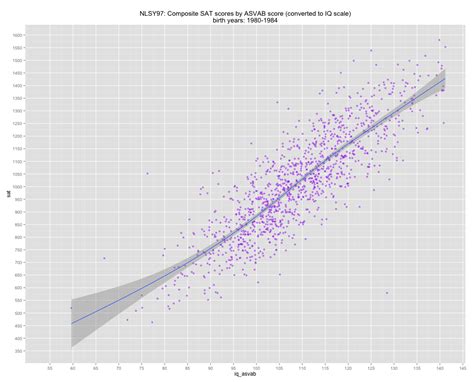Introduction
The SAT and IQ tests are two widely recognized measures of cognitive abilities. While they share some similarities, they are unique in their own ways. This article delves into the complex relationship between SAT scores and IQ scores, examining the correlation, exploring potential explanations, and discussing the implications for education and beyond.

SAT vs. IQ: A Brief Overview
SAT
- Standardized test used for college admissions in the United States and some international schools.
- Measures critical reading, mathematics, and writing skills.
- Scores range from 400 to 1600.
IQ
- Intelligence quotient, a measure of general cognitive abilities.
- Typically determined by a standardized test, such as the Wechsler Adult Intelligence Scale (WAIS).
- Scores range from 0 to 200, with an average of 100.
Correlation between SAT and IQ
Research has consistently found a significant correlation between SAT scores and IQ scores. A meta-analysis by Wai, Lubinski, and Benbow (2009) reported a correlation of 0.53 between SAT scores and WAIS IQ scores. This indicates a moderate to strong positive relationship between the two measures.
Explaining the Correlation
Several factors contribute to the correlation between SAT and IQ:
- Shared cognitive abilities: Both SAT and IQ tests measure various aspects of cognitive abilities, such as verbal reasoning, working memory, and problem-solving skills.
- Early cognitive development: Researchers have found that early cognitive development predicts both SAT scores and IQ scores. Children with higher early cognitive skills tend to perform better on both tests.
- Socioeconomic factors: Socioeconomic status can influence access to educational resources and opportunities, which can affect both SAT and IQ scores.
Implications for Education
The correlation between SAT and IQ has implications for educational practices:
- Early intervention: Identifying children with high cognitive potential early on can enable interventions to support their development and maximize their potential.
- Test bias: The correlation between SAT and IQ raises concerns about potential biases in the SAT. Some argue that the test favors students from certain socioeconomic backgrounds who have access to better educational resources.
- Alternative measures: Exploring alternative measures of college readiness, such as high school GPA and extracurricular activities, can help reduce the reliance on SAT scores alone.
Beyond Education: Applications in Other Fields
Workforce screening: Employers may use SAT scores to screen job candidates for positions that require cognitive abilities, such as analytical tasks or leadership roles.
Medical research: Researchers have investigated the potential link between SAT scores and cognitive decline in later life. Higher SAT scores have been associated with a lower risk of cognitive impairment and dementia.
Personality assessment: Some research suggests that SAT scores may provide insights into personality traits, such as conscientiousness and openness to experience.
Validating Customers’ Points of View
Are SAT scores a fair measure of intelligence?
SAT scores provide a snapshot of cognitive abilities on a given day and time. They may not fully capture all aspects of intelligence, such as emotional intelligence or creativity.
Should other factors, such as high school GPA, be considered in college admissions?
Considering multiple measures of college readiness, including high school GPA, extracurricular activities, and personal statements, provides a more holistic assessment of candidates’ potential for success in higher education.
Comparison of Pros and Cons
| Advantages of Using SAT Scores | Disadvantages of Using SAT Scores |
|---|---|
| Widely recognized measure of cognitive abilities | May favor students from privileged backgrounds |
| Relatively easy to administer and score | Can be biased against students with certain disabilities or socioeconomic backgrounds |
| Can be used for screening job candidates | Not a comprehensive measure of intelligence |
Conclusion
SAT scores and IQ scores measure different aspects of cognitive abilities and are correlated but distinct. The correlation has implications for education and has potential applications in various fields beyond education. While SAT scores provide a measure of cognitive abilities, they should be used in combination with other measures to fully assess students’ potential. By understanding the relationship between SAT scores and IQ, we can make informed decisions about educational practices and the use of SAT scores in various contexts.
